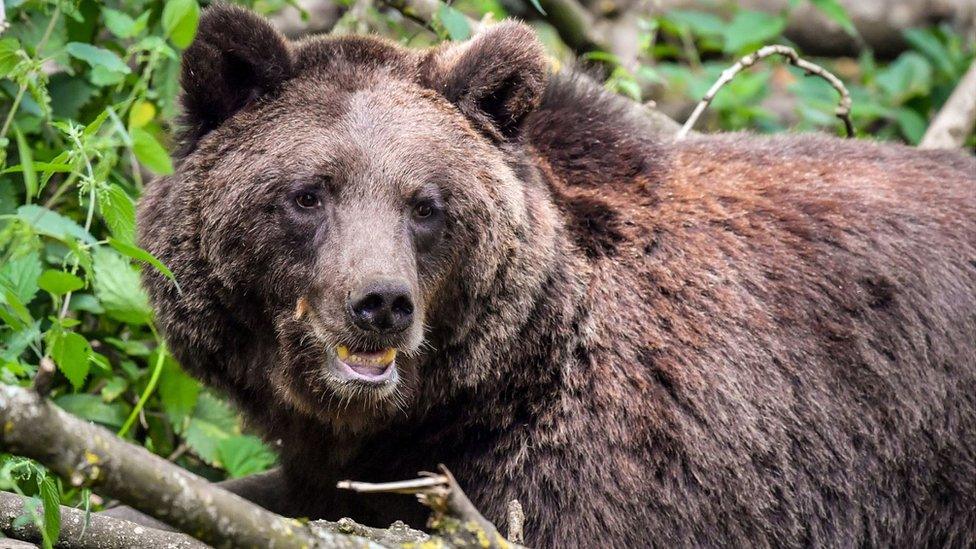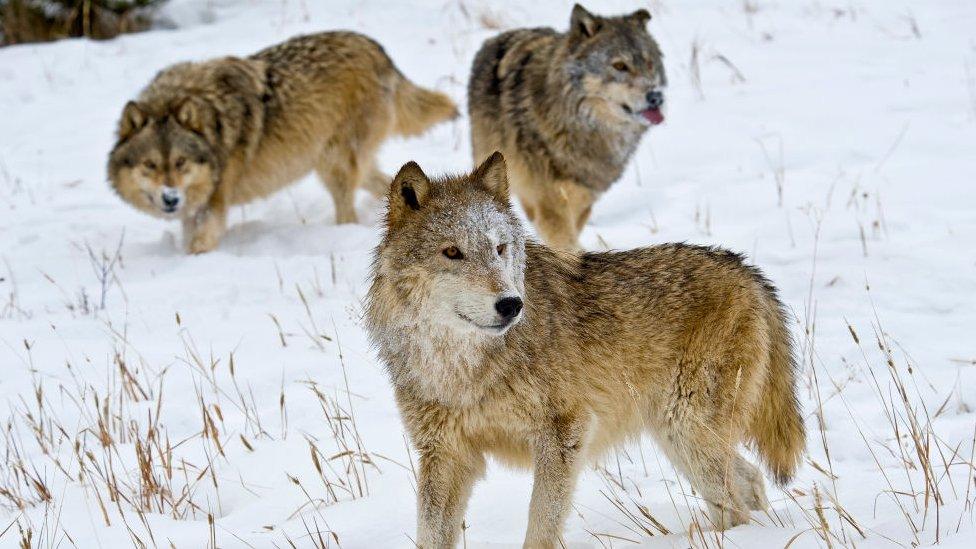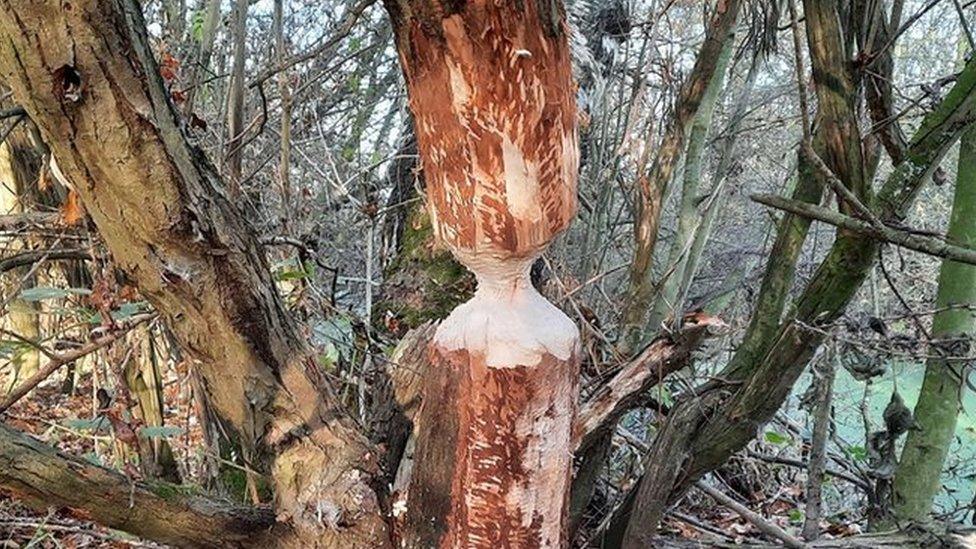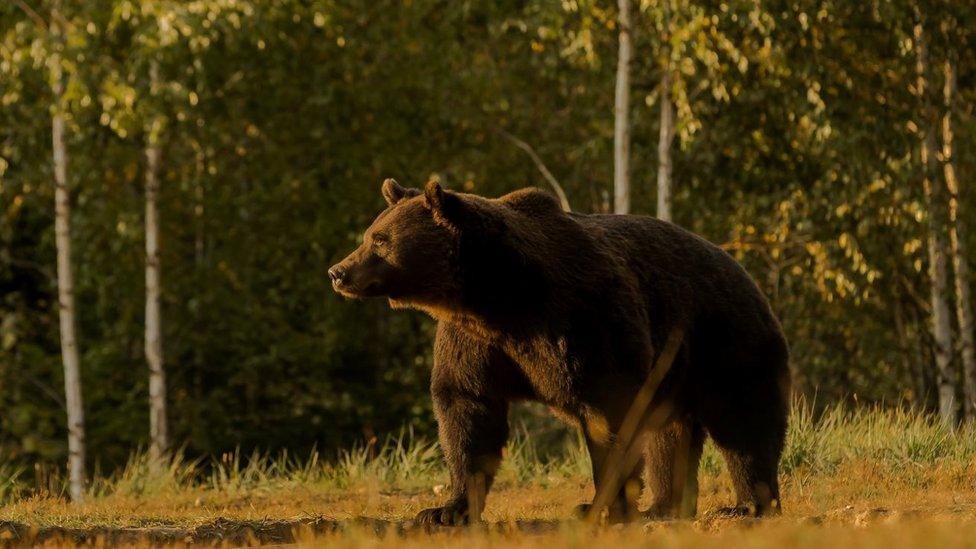Brown bears switch habitats to hunt, study finds
- Published

Researchers said one bear in the study killed 38 newborn reindeer in a single month
Brown bears switch habitats in the spring so they can hunt reindeer and moose calves, researchers have said.
A team, including members from Nottingham Trent University (NTU), followed 15 bears fitted with GPS collars for two years in Sweden.
This showed that after hibernation, the animals moved to areas preferred by reindeer and moose.
The team said their findings could be used to predict bear hunting "hotspots".
'Promote long-term conservation'
The study found bears around Norrbotten, northern Sweden, surfaced from six-month hibernation in the spring, which was when the reindeer calving period started.
At this time they changed their preference for habitats close to wetlands and evergreen forests, to more rugged terrain and higher elevations favoured by reindeer with young.
After the reindeer calving period ended and the moose calving season started, the predators started to move to areas preferred by the latter - closer to deciduous forests.
Researchers said one of the bears studied killed 38 newborn reindeer one month and 18 young moose the next.
Dr Antonio Uzal Fernandez, from NTU's school of animal, rural and environmental sciences, said: "Large carnivores are partially recovering their former ranges across multiple continents and, while this can provide ecological benefits for many ecosystems, it can also bring management implications and undesired effects such as depredation of livestock.
"Our work could help to inform managers and livestock owners how to reduce this conflict and promote long-term conservation and human-wildlife coexistence."
Previously extinct or endangered animals have been reintroduced across Europe, with beavers coming back to Nottinghamshire last year.
The study was published in the journal Diversity.

Follow BBC East Midlands on Facebook, external, on Twitter, external, or on Instagram, external. Send your story ideas to eastmidsnews@bbc.co.uk, external.
Related topics
- Published3 December 2021

- Published25 November 2021

- Published5 May 2021
